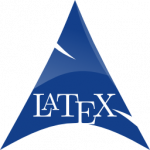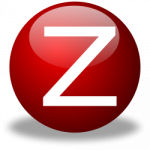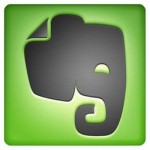THATCamp Workshops are the heart of any THATCamp (un)Conference. We all love to learn something new, or learn something better.
We are planning to offer Workshops on Thursday and Friday Morning (Please see schedule).
These are the Workshops we have planned so far! If you can teach a workshop, please let us know!! We are adding more every day!
Thursday, June 14
Build a WordPress Website In One Hour or Less!
 Learn to build a website with WordPress Blogging software hands-on. This will be held in the computer lab. No coding experience required! A beginners workshop for anyone who wants to build a WordPress Site like the one you are on right now.
Learn to build a website with WordPress Blogging software hands-on. This will be held in the computer lab. No coding experience required! A beginners workshop for anyone who wants to build a WordPress Site like the one you are on right now.
Michelle Kassorla is the coordinator of THATCamp HBCU, and a lecturer in Clark Atlanta University’s WISE QEP program. She has been teaching WordPress for three years.
Think Like a Programmer:
Learning LaTex as an Introduction to Programming Syntax
 Peter Molnar will walk you through this hands-on workshop in learning LaTex, providing you with all the information you need to create a document and begin thinking like a programmer–with no programming or coding experience required.
Peter Molnar will walk you through this hands-on workshop in learning LaTex, providing you with all the information you need to create a document and begin thinking like a programmer–with no programming or coding experience required.
Peter Molnar is an Associate Professor of Computer Science at Clark Atlanta University.
Introduction to Zotero
Making the Teaching of Style Almost Obsolete!
 Zotero is a free open-source program created by the Center for History and the New Media at George Mason University (where THATCamp originated!!). It works with Firefox as an add-on, and on Safari and Google Chrome as a stand alone program. It also has an extremely powerful Microsoft Word plug-in which makes teaching style to our students almost obsolete!
Zotero is a free open-source program created by the Center for History and the New Media at George Mason University (where THATCamp originated!!). It works with Firefox as an add-on, and on Safari and Google Chrome as a stand alone program. It also has an extremely powerful Microsoft Word plug-in which makes teaching style to our students almost obsolete!
Michelle Kassorla is the coordinator of THATCamp HBCU, and a lecturer in Clark Atlanta University’s WISE QEP program. She has been using Zotero for years, and has just started introducing it to all of her students, random people at the computer lab, and anyone she can stop on the street.
Friday, June 15th
Note-able Software
Evernote and Microsoft OneNote
 Notebook software can be the best option for an overall organizational tool at a low cost. Chystal Renfro and Mary Axford will introduce the two most common and most powerful notebook software programs, Evernote and Microsoft OneNote.
Notebook software can be the best option for an overall organizational tool at a low cost. Chystal Renfro and Mary Axford will introduce the two most common and most powerful notebook software programs, Evernote and Microsoft OneNote.
![]()
The discussion will include characteristics to consider when choosing a notebook software application and how to most effectively use them to organize your personal and professional life. We will give a walking tour of both products using real life notebooks which illustrate characteristics such as device compatibility, organizational structure, and note formats.
Crystal Renfro and Mary Axford are subject librarians in the Faculty Engagement Department of the Georgia Institute of Technology Library. Both have an interest in tools to increase academic productivity and workflow, and teach library workshops on these topics. Their upcoming article on notebook software will be published in the May/June 2012 issue of the journal Online.
Google Tools
How We Use the World of Google Tools in our Classrooms
 Google Tools are powerful, free, and engaging. This is a session about Google Tools in the Classroom–how we use them, and what we do with them. This session will be moderated, but it is open for sharing and swapping best practices with Google Tools.
Google Tools are powerful, free, and engaging. This is a session about Google Tools in the Classroom–how we use them, and what we do with them. This session will be moderated, but it is open for sharing and swapping best practices with Google Tools.
Moderated by Vance Ricks, Associate Professor of Philosophy, and hard-core technophile from Guilford College, Greensboro, NC.
Productivity with ideas
Software for Tracking and Transforming
What You’ve Found and Thought
 We generate ideas, save articles from journals and databases, take notes at meetings, jot down notes during phone calls, archive emails, have wow! moments during conversations – but how do we keep track of all these ideas? We don’t know which ones will end up being useful, so we tend to save them all.
We generate ideas, save articles from journals and databases, take notes at meetings, jot down notes during phone calls, archive emails, have wow! moments during conversations – but how do we keep track of all these ideas? We don’t know which ones will end up being useful, so we tend to save them all.
There is software that can help you take these different kinds of items, combine them, play with them, uncombine them, put them back together differently, and ultimately make sense of them and turn them into new knowledge. This session will cover some different types of software for dealing with these issues. We’ll look at actual databases using examples of these types of software so that you can see typical problems they can address and get a sense of how they work.
Dr. Shields has a PhD in International Relations as well as a Masters’ in Library Science. During her first career, in international development, she worked in organizations ranging from the Peace Corps to the World Bank, and in countries as diverse as Tunisia, Djibouti, and Sri Lanka. She came to Atlanta to work as a librarian in the Carter Center, went on to work for Georgia Tech’s Enterprise Innovation Institute, and moved recently to Kennesaw State University. She started looking for “idea management” software in the 1980s when she was writing her dissertation, which was based on semi-structured interviews. The problem of information/knowledge management has gotten steadily worse.

